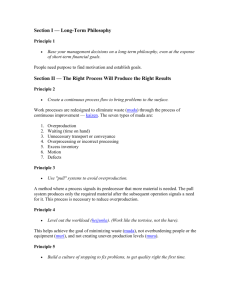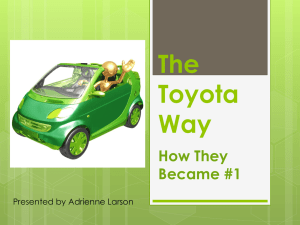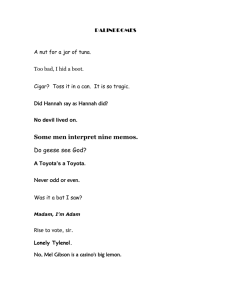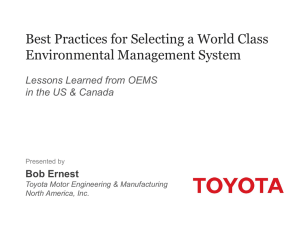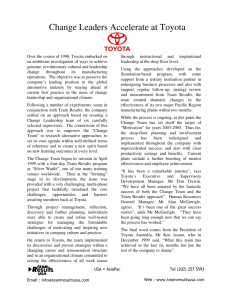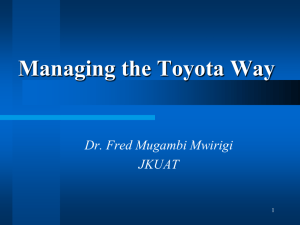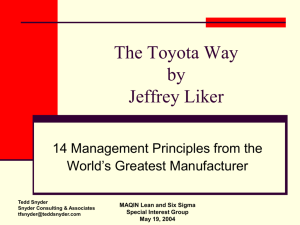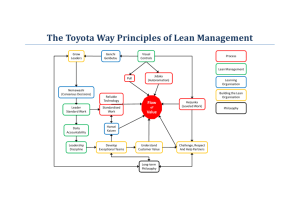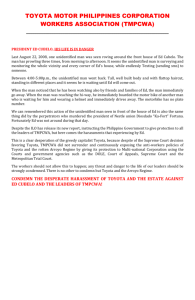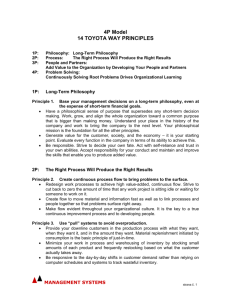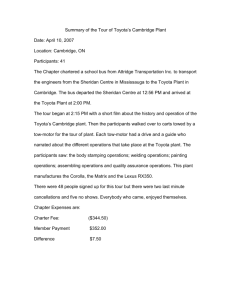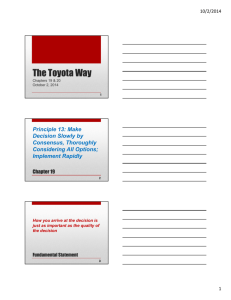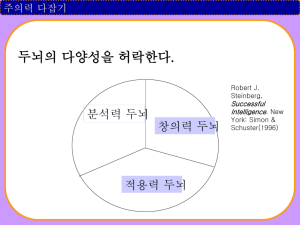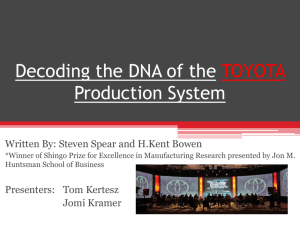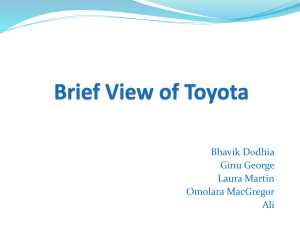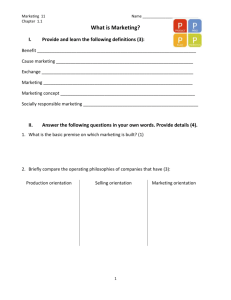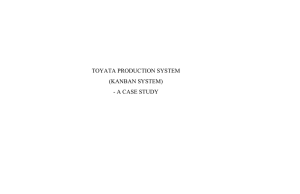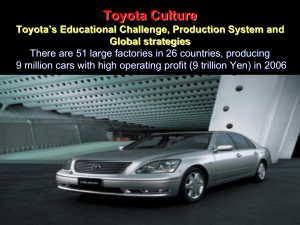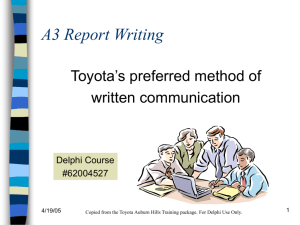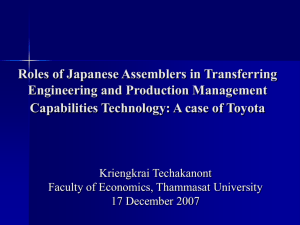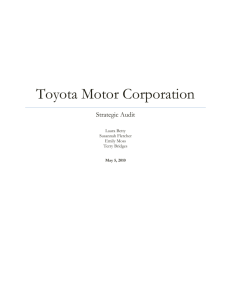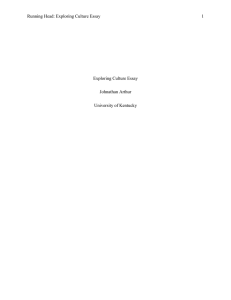Chapter_1
advertisement
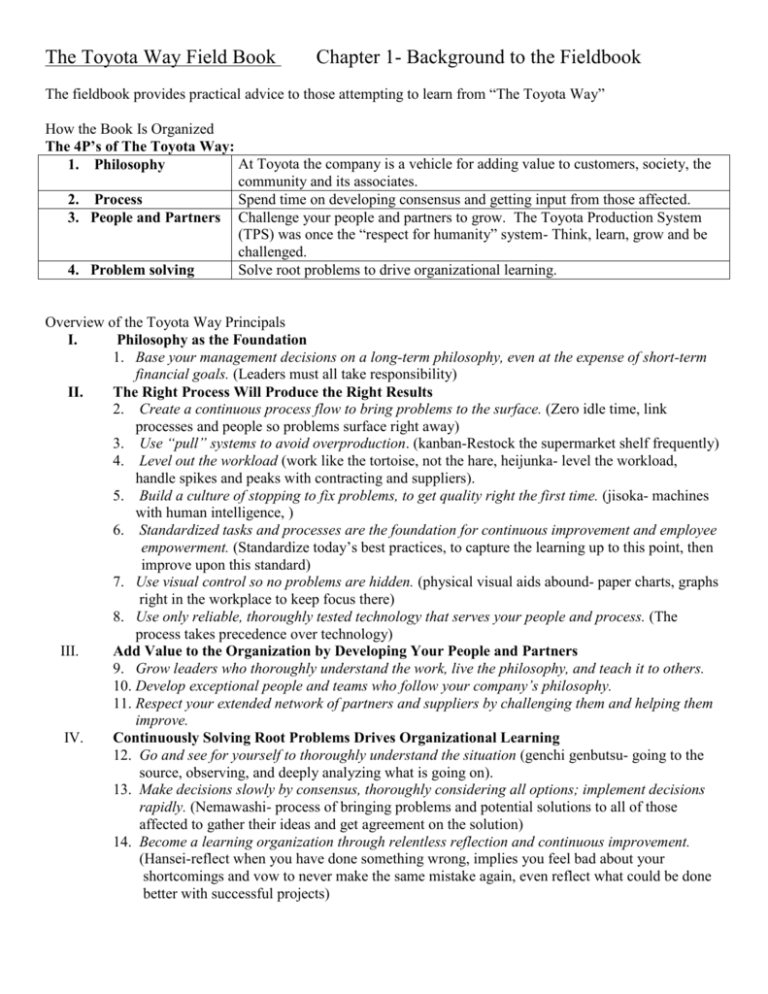
The Toyota Way Field Book Chapter 1- Background to the Fieldbook The fieldbook provides practical advice to those attempting to learn from “The Toyota Way” How the Book Is Organized The 4P’s of The Toyota Way: At Toyota the company is a vehicle for adding value to customers, society, the 1. Philosophy community and its associates. Spend time on developing consensus and getting input from those affected. 2. Process 3. People and Partners Challenge your people and partners to grow. The Toyota Production System (TPS) was once the “respect for humanity” system- Think, learn, grow and be challenged. Solve root problems to drive organizational learning. 4. Problem solving Overview of the Toyota Way Principals I. Philosophy as the Foundation 1. Base your management decisions on a long-term philosophy, even at the expense of short-term financial goals. (Leaders must all take responsibility) II. The Right Process Will Produce the Right Results 2. Create a continuous process flow to bring problems to the surface. (Zero idle time, link processes and people so problems surface right away) 3. Use “pull” systems to avoid overproduction. (kanban-Restock the supermarket shelf frequently) 4. Level out the workload (work like the tortoise, not the hare, heijunka- level the workload, handle spikes and peaks with contracting and suppliers). 5. Build a culture of stopping to fix problems, to get quality right the first time. (jisoka- machines with human intelligence, ) 6. Standardized tasks and processes are the foundation for continuous improvement and employee empowerment. (Standardize today’s best practices, to capture the learning up to this point, then improve upon this standard) 7. Use visual control so no problems are hidden. (physical visual aids abound- paper charts, graphs right in the workplace to keep focus there) 8. Use only reliable, thoroughly tested technology that serves your people and process. (The process takes precedence over technology) III. Add Value to the Organization by Developing Your People and Partners 9. Grow leaders who thoroughly understand the work, live the philosophy, and teach it to others. 10. Develop exceptional people and teams who follow your company’s philosophy. 11. Respect your extended network of partners and suppliers by challenging them and helping them improve. IV. Continuously Solving Root Problems Drives Organizational Learning 12. Go and see for yourself to thoroughly understand the situation (genchi genbutsu- going to the source, observing, and deeply analyzing what is going on). 13. Make decisions slowly by consensus, thoroughly considering all options; implement decisions rapidly. (Nemawashi- process of bringing problems and potential solutions to all of those affected to gather their ideas and get agreement on the solution) 14. Become a learning organization through relentless reflection and continuous improvement. (Hansei-reflect when you have done something wrong, implies you feel bad about your shortcomings and vow to never make the same mistake again, even reflect what could be done better with successful projects)
